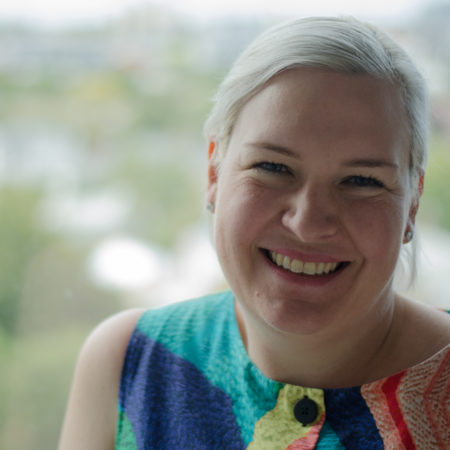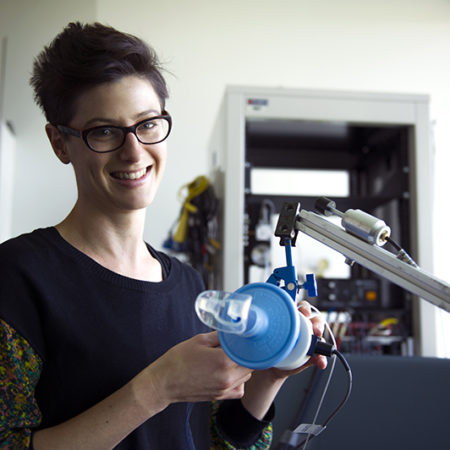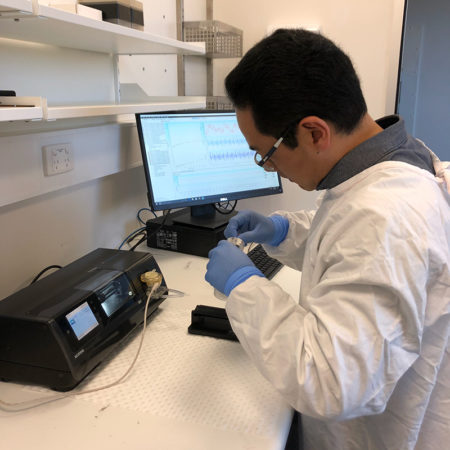For Dr Christian Osadnik, research means unifying expert insights from patients, healthcare professionals and researchers to improve healthcare delivery and outcomes.
What inspired or motivated you to undertake this research project?
I am a physiotherapist with a strong interest in optimising the health of people living with lung conditions such as Chronic Obstructive Pulmonary Disease (COPD). Much of my clinical experience centred upon the care we deliver during the time of hospitalisation due to acute flare-ups (exacerbations). Ensuring optimal recovery of physical function after discharge from hospital is something we have yet to master within respiratory medicine. This research was designed to improve our understanding of the factors associated with good or poor recovery within one month of discharge.
What have been some of the key findings or outcomes achieved from your research?
This study involved the creation of a unique dataset of comprehensive clinical information. One aspect I have focused on so far has been the negative impact of frailty upon one’s recovery. Having frailty was associated with considerably poorer function at the time of discharge and a heightened risk (almost 4-times) for hospital readmission (within 90-days). This suggests it is a very important trait to detect during the time of hospitalisation, yet it is not common within current models of Australian respiratory healthcare. The good news is that a large proportion of people who have frailty during the time of hospitalisation will see this spontaneously resolve.
How do you envision this will impact the health and wellbeing of patients?
Acute exacerbations of COPD are complex medical events that have enduring negative health effects upon individuals. Having a clearer understanding of the detectable factors that contribute to good or poor recovery after discharge is crucial in order to focus attention towards the right treatment for the right individual. Treatments like pulmonary rehabilitation are excellent options to facilitate recovery, but alternative models of care may also need to be developed to better support people with frailty. It is hoped findings from our study will lead to an improved ability to appropriately triage individuals with high rehabilitation needs.
How important was funding from Lung Foundation Australia for your work?
This research would simply not have occurred without the support of Lung Foundation Australia and Boehringer-Ingelheim. I have a passion for clinical respiratory research, but the reality of my situation (and many others) is that this can only occur in fine balance with concurrent full-time employment. Obtaining a fellowship salary was the only way I could backfill my other academic duties to dedicate the requisite time to undertake the research, and I am so grateful for that opportunity.
A number of our research awards are funded through generous donations from patients and families impacted by lung disease. If you had the opportunity, what would you say to someone considering donating to lung focused research?
In Australia, we currently operate within a landscape where it is becoming increasingly difficult to secure Government funding for large-scale healthcare research. Investigators simply must look elsewhere for funding opportunities. Unfortunately, the available funding for research into lung health is far below that of many other health diseases, which forces many talented people in the healthcare and scientific community (who possess the passion and expertise to work in lung health) to seek opportunities in other fields. Donations for research ‘tagged’ to lung health, such as those offered by families through Lung Foundation Australia, can be the absolute difference that helps retain the knowledge and skills required to generate the science that will advance future lung health care for people affected by lung disease. They are not taken for granted and truly make a difference.
What change do you hope to see in the lung disease and lung cancer space by 2030?
I am extremely proud to live in a country where smoking rates, particularly in young people, are currently amongst the lowest in the world. This demonstrates the effectiveness that responsible healthcare policies and public health education can have upon societal culture. By 2030, I would like to witness a similar change in society that sees the stigma so commonly attached to people living with lung disease and lung cancer removed. It is simply fair and proper. As a clinician-researcher in this space, I would also like to believe that fairness would extend to a more responsible distribution of medical research funding across major disease groups. The area of lung health research deserves better.
Dr Osadnik hopes that research will continue to inspire talented healthcare clinicians to seek training and mentorship in order to develop future Australian healthcare leaders. Dr Osadnik also hopes that in the future healthcare research will one day be fairly and adequately funded, particularly to support people in the early stages of their career.




